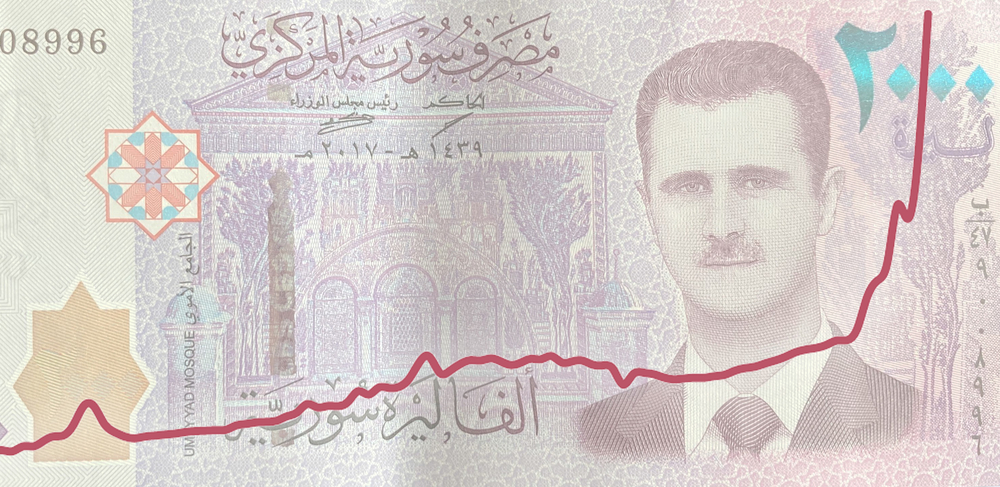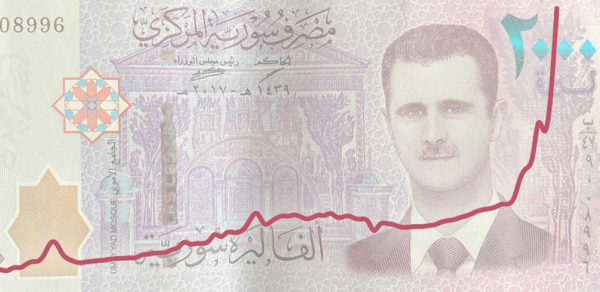
Beirut – Five days of protests have shaken Syria’s usually peaceful Druze enclave of Suweida, as rising prices and a falling domestic currency have pushed ordinary Syrians hurt by the crisis to vent their anger.
Amateur video has shown scores of people demonstrating and chanting against the government.
In Damascus, many shops and businesses reportedly have closed as exchange rates fluctuated wildly. Factories that produce pharmaceutical goods also have closed because of shortages of raw materials, while fuel shortages have forced the government to buy gasoline from Lebanon.
Atop these developments, new U.S. economic sanctions on people and businesses trading with the Syrian government are set to take effect June 17.
As the crisis intensified, President Bashar al-Assad replaced Prime Minister Imad Khamis on Thursday with Water Resources Minister Hussein Arnous.

Several factors — including a major economic crisis in neighboring Lebanon, U.S. economic sanctions on Syria’s top regional ally, Iran, and an internal spat between Assad and his cousin and oligarch, Rami Makhlouf, have added to the decline of the Syrian pound.
Makhlouf has said on social media that he has not done anything improper in his business dealings as head of the Syrian mobile phone network Syriatel and insists he has been a top supporter of the government since 2011.
Syrian economic analyst Dr. Oussama al Qadi told Arab media the feud between Assad and his cousin had caused the Syrian pound to lose at least a third of its value. A government decision to outlaw black market sales of foreign currency, he said, also inflamed the crisis.
Joshua Landis, who heads the Middle East program at the University of Oklahoma, told VOA the unprecedented fall in the value of the Syrian pound has made almost everyone desperate.
‘Tons of pressure’
“There is tremendous discontent in Syria today,” he said. “Everybody I know in Syria is in desperate economic shape. There’s tons of pressure, and these demonstrations are an expression of the pain that Syrians are feeling from the collapse of the Syrian pound.”
Despite the desperation, Landis doubts the present crisis is going to cause the Assad government to fall, since he no longer sees any organized opposition inside the country.
“The opposition,” he said, “is fragmented and has been driven out of the country,” except for opponents in the Turkish-protected enclave of Idlib.
Landis also said the new U.S. sanctions on the Syrian government, “while being framed in humanitarian terms,” are mostly aimed at hurting Russia and Iran “and depriving them of the fruits of their victory.” U.S.-Syria coordinator James Jeffrey explained recently that his job is to make Syria “a quagmire” for Russia.
Khattar Abou Diab, who teaches political science at the University of Paris, told VOA that Assad’s administration “has been seriously weakened” by the decline of the pound and that things are fast becoming “intolerable” for many people. He added that U.S. pressure on Lebanon might have contributed to the crisis.
Diab said Lebanon was Syria’s economic lungs. More than $3 billion or $4 billion used to transit annually between Lebanon and Syria in various economic dealings.
VOA


Leave a Reply
You must be logged in to post a comment.